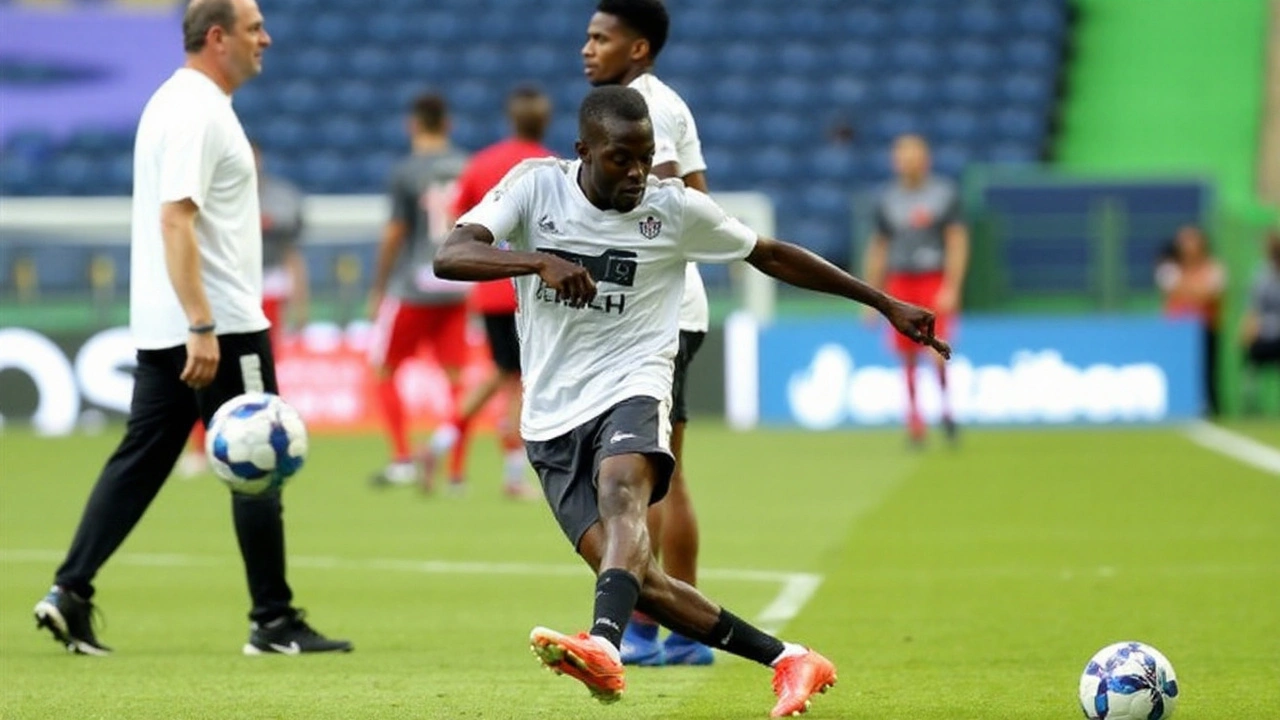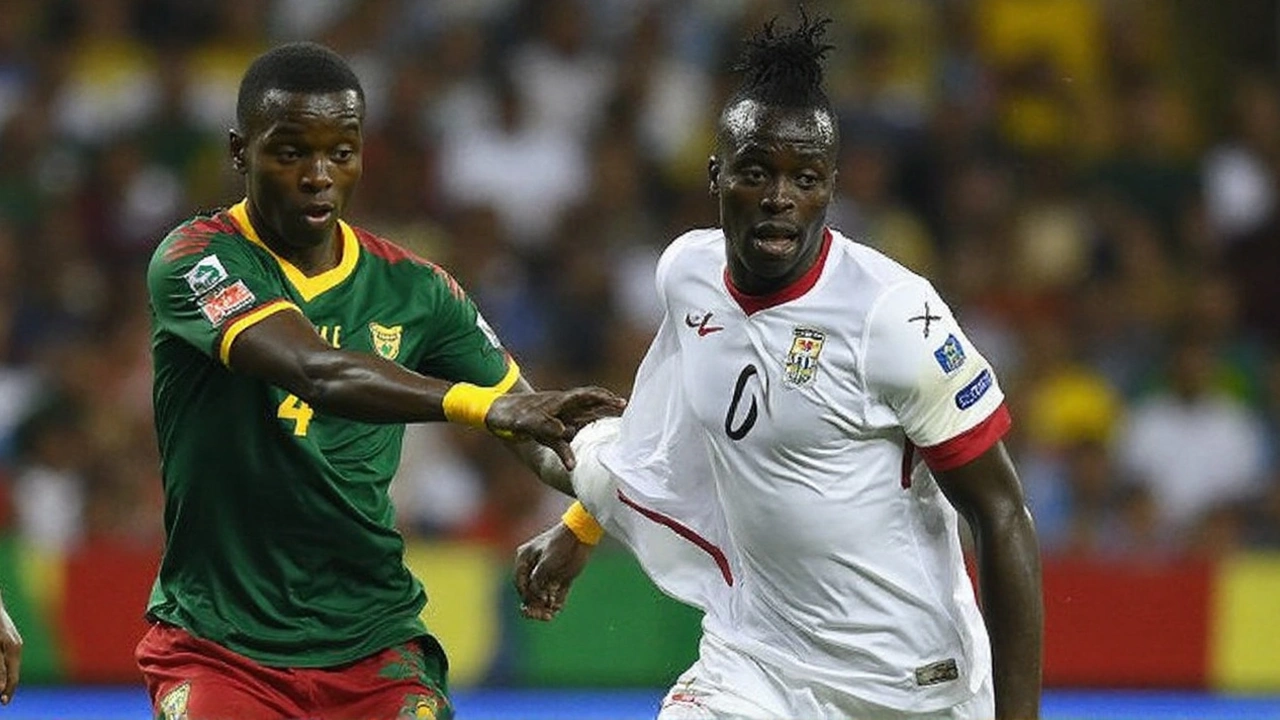Big money, new markets: why China still draws Africa’s stars
The football road from Africa to China isn’t closing; if anything, it keeps getting repaved. Burkina Faso forward Bertrand Traoré, who has played for Chelsea, Lyon and Ajax, sees what agents and club executives have been saying for years: when a contract from China lands on the table, it often outmuscles what mid-tier European clubs can offer.
That’s the simple truth behind a complex trend. Chinese clubs sell a package—good wages, fat signing-on fees, performance bonuses, housing, and support for families. Even after the league brought in transfer taxes and salary limits in recent seasons, the top deals still look life-changing to players who grew up counting every dollar. One agent who has broked several Africa-to-Asia moves explained it bluntly: a three-year net package in China can equal six or seven years in a secondary European league.
History shows how strong that pull can be. Asamoah Gyan’s salary at Shanghai SIPG was reported in the tens of millions per year at its peak. Odion Ighalo earned far more in China than he did in England before returning to Europe and later Saudi Arabia. Cédric Bakambu’s contract at Beijing Guoan was widely reported as one of the biggest for an African forward anywhere. Obafemi Martins, Demba Ba, Gervinho, Stéphane M’Bia, Papiss Cissé, and Frank Acheampong all found China a lucrative landing spot. Not all stayed long, but the message spread: serious money lives there.
This sits inside a larger economic story. China’s investment footprint in Africa—construction, telecoms, mining, and media—has created new links and comfort with the China opportunity. Broadcasters with Chinese backing have bought rights to African football. Agents now have reliable networks in Beijing, Shanghai, and Tianjin, making trials and medicals smoother than a decade ago. Once the path exists, more players follow it.
It’s not just raw salary. Clubs pitch stability: guaranteed payments, relocation support, school fees, and medical care. For players in their mid-20s to early 30s—the prime earning window—that mix can beat a relegation fight in Europe with a short-term deal and no safety net. And there’s another carrot: bonuses for goals, assists, and wins that can double a season’s take-home if things go right.
Yes, Chinese football changed after its spending spree. Regulators added a 100% levy on high transfer fees, set foreign-player caps, and introduced salary ceilings to cool the market. Then the pandemic hit club finances, and some teams folded—Jiangsu’s collapse in 2021 was a warning. Yet the top end of the market didn’t disappear; it just became more selective. Today, the offers target specific needs—goal scorers, quick wingers, and defenders with strong aerial presence. That selectivity works in favor of proven African internationals, who fit those profiles and bring immediate impact.
Traoré’s own career shows how global the modern game is. From West Africa to London, Amsterdam, Lyon and beyond, he’s navigated football like a multinational worker. For many African players, China is another stop in that loop, not the end. Some use it as a cash-and-confidence reset before jumping back to Europe or the Middle East. Others put down roots and become the steady veterans who help local teammates grow.

What the move means for careers—and for African football
There are trade-offs. National team coaches often prefer players in top European leagues because of the weekly intensity. Some worry that the pace and tactical demands in China can be uneven, depending on the club. But this concern has softened as more internationals return from China sharp and motivated—especially those who maintained personal fitness programs and played under demanding coaches.
Culture is another test. Language barriers, different training schedules, and long away trips can be hard at first. Players who thrive usually arrive with a small team around them—agent, fitness coach, or a family member—to manage life off the pitch. Clubs have learned to offer translators, nutrition plans, and tailored training. The better the off-field care, the longer players tend to stay.
Work rules shape the market too. Foreign-player quotas limit how many can be registered and how many can play on a matchday, so every slot carries pressure. You’re not brought in to blend; you’re brought in to decide games. That clarity can be freeing. A striker knows his job is to score, and a center-back knows his job is to win duels and clear his box. If you produce, the club builds around you.
The competition for talent is also shifting. Saudi Arabia’s spending boom has become the loudest rival to China for established names. Gulf clubs often match or beat Chinese offers. Even so, deals out of China remain competitive, especially for players with big output but smaller global brand power. For a 26-year-old winger from Ghana or DR Congo with double-digit goals and assists in a mid-level European league, China might be the best pure money-and-minutes combo on the market.
On the African side, the export pipeline starts early. Academies in Senegal, Ivory Coast, Nigeria, and Ghana have built reliable scouting ties with Asia. Trial windows align with Chinese preseason, and successful players send money home that funds more youth teams, better pitches, and new agents. That self-reinforcing loop keeps the flow alive even when global markets cool.
There’s a broadcast angle too. As Chinese media groups expand sports coverage in Africa, fans see more of their countrymen in Asian leagues, not just Europe. That visibility normalizes the move. And when a player lifts a domestic cup or wins a golden boot in China, clips race across WhatsApp and Instagram groups back home. Young players notice. So do parents and local coaches.
Agents weigh deals in spreadsheets, not slogans. They look at net pay after tax, currency risk, match bonuses, image rights, housing, and the chance to renegotiate after year one. They check whether the club pays on time and how it treats injured players. They ask about exit clauses—could the player switch to Saudi or Europe if a big offer arrives? The Chinese clubs that answer those questions cleanly are the ones landing signatures.
For clubs in Africa, there’s upside and downside. They earn from sell-on clauses and solidarity payments when a player moves abroad, and the money can fund academies and scouting. But losing stars mid-season can wreck title runs. Some leagues now time contracts to reduce that risk. More smart contracts means more stability at home, even as the best players look abroad.
The wider football economy points to a steady, if more measured, China pull. Quotas and caps mean fewer wild deals, but the premium slots are still lucrative. Players who fit a clear role and arrive ready to deliver tend to leave with both savings and stature. And with China-Africa business ties still deepening, the personal networks that make these transfers happen only grow stronger.
That’s why, despite the noise around Europe and the Gulf, the Chinese Super League remains in the conversation for African talent. It offers money, minutes, and a different stage. For many, that combination is hard to beat.
